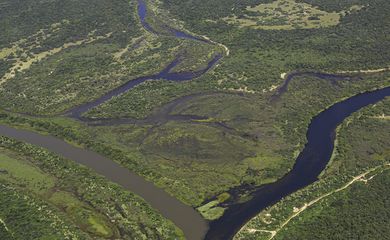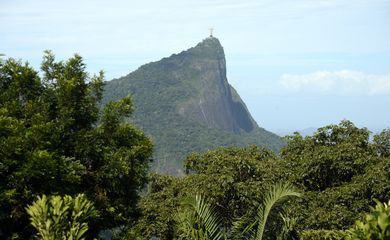Illegal activities have expanded deforestation in the Atlantic forest

Land use for cattle ranching, forestry for charcoal, and soybean plantations were the economic activities that most contributed to the devastation of the Atlantic forest over the past decade. It cost the biome the equivalent of 200 thousand soccer fields from 2010 to 2020. Most of the occurrences took place in small areas of large private properties with signs of illegal practices.

Scientists from the National Institute for Space Research (INPE), the University of São Paulo (USP), and the NGO SOS Mata Atlântica Foundation conducted a review of data from satellite images of Brazil’s Atlantic forest regions from 2010 to 2020. The results indicate that more than 186 thousand hectares of mature forest have been cut down across 14 thousand different locations, from the coast of the Northeast to the South of the country.
The study published Friday (Feb. 14) in the journal Nature Sustainability with the title Alarming Patterns of Loss of Mature Forests in the Brazilian Atlantic Forest examines spatial and temporal patterns of deforestation considering geographical distribution, size, land ownership, and land use following deforestation.
The state of Bahia was where most of the loss was recorded, especially in the region bordering Minas Gerais, forming the biggest hotspot for increased deforestation in the period, with half of the records—precisely in a region where planting eucalyptus to produce charcoal for use in thermoelectric power stations is a major activity. Minas Gerais properties also recorded activities that harmed mature forests. Another negative highlight is the losses in Paraná and Santa Catarina states.
According to the study, in addition to the impact on global warming (as cutting down trees emits a large amount of greenhouse gases), the forest on the ground plays a significant role on the quantity and quality of the water that supplies the cities. The region is home to most of the country’s population. There are a series of environmental services, as it were, performed by the standing forest which, if interrupted, would impact society as a whole, first and foremost the poorest, who are most affected by rising food prices, floods, and the climate crisis.
The study also highlights the insufficiency of protected areas in curbing the advance of deforestation. In a statement, study co-author Silvana Amaral, a researcher at INPE, pointed out that deforestation on indigenous and quilombola lands, as well as in protected areas, though lower in volume, still shows alarming rates.
“This highlights the need for greater support for these communities and more effective environmental governance,” she added.
The authors suggest that, in addition to stepping up enforcement of the Atlantic Forest Law, investment should be made in restoring degraded ecosystems and expanding protected areas, combining conservation and sustainable development efforts.
The study began four years after the Atlantic Forest Law was passed in 2006. According to Luís Fernando Guedes Pinto, executive director of the SOS Mata Atlântica Foundation, this should be enough to provide a basis for governments, in their different spheres, to curb this type of activity, on both large or small properties.
“This has been an issue through a number of administrations. If we cross-reference it with other literature, we see indications that almost all of this deforestation was illegal and could have been combated by the state—and it wasn’t,” the scientist said.
“We should strengthen inspection mechanisms and create economic incentives,” he argued, “to make conservation viable, especially on private properties. We need to have mechanisms other than those based on command and punishment.”




